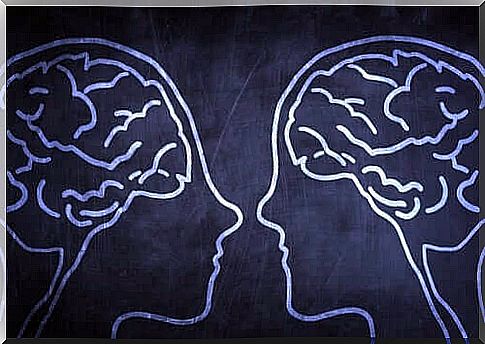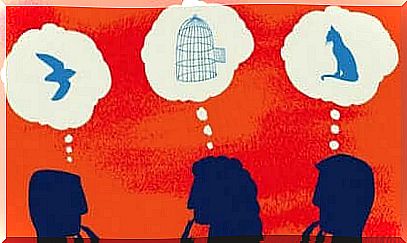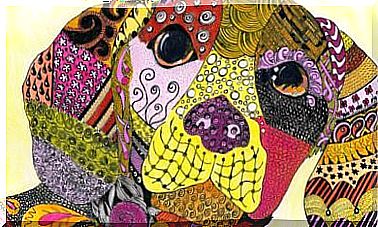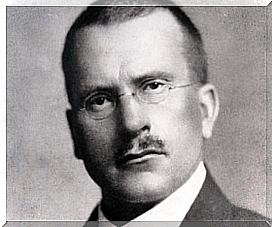The Social Brain: Why Is It An Evolutionary Advantage?

The social brain is a concept created by neuroscience. It refers to the innate ability to relate to others. It has been proven that there are brain circuits involved in both the formation of self-awareness and the capacity for empathy.
The concept of the social brain is based on the idea that there are several areas of the brain directly related to social relationships. There is the fusiform gyrus, which stores faces in memory. Of course, mirror neurons, which make imitation possible. Von Economo neurons, which guide us in conflicts, etc.
On the other hand, there is the possibility of creating and using a language. This aspect was definitive in the evolution of Man and is directly associated with the need to relate to others. The social brain is made up of two major systems: mirror neurons and theory of mind.

The social brain and mirror neurons
Mirror neurons are a special type of neurons that are activated when actions or emotional expressions in others are observed. That is, when someone imagines that another person is doing something, it is as if they are doing it themselves. One way or another, the human being appropriates the feelings and emotions of others.
Mirror neurons are primarily found in the frontal lobe, a region associated with movement and tactile sensitivity. Also in the parietal lobe, which provides body image and sensory information. But also in the insular and cingulate cortices, both related to emotions and pain.
Mirror neurons cause the so-called “contagion effect”. It is one of the fundamental mechanisms of the social brain.
As the name suggests, this effect causes the emotions and feelings of others to pass from one person to another, through an almost automatic mechanism. In this way, it ends up imitating what is perceived in the environment.
Theory of Mind
The other great system that structures the social brain is the theory of mind. It is the ability to attribute intentions or thoughts to other people or even sometimes to other entities. This function allows you to reflect on your own mental state and that of others, mainly through bodily signs.
This perception of self and others includes emotions, feelings, beliefs, etc. Finally, it allows us to predict what will be our own behavior and that of others in the face of certain events. In general, this ability is not exercised deliberately, but intuitively.
Mirror neurons and theory of mind are the two major components of the social brain and its most finished product: empathy. It is the ability to understand the other on their own terms or, in other words, to put themselves in their shoes.
We are all born with the potential to develop empathy, but we don’t always succeed. Under “normal” conditions, all human beings would have the capacity to put themselves in other people’s shoes. However, individual experiences and education can promote unfriendly behaviors, through poorly adaptive behaviors, prejudices, etc.

Cooperation is a smart act
If human beings are equipped to be sociable, it is not by nature’s whim. The link with others has been decisive for the evolution of the species. Language is one of the most elaborate products of this evolution. And its function is precisely to relate thoughts and feelings to each other.
One could say that the human being is a helpless being, with much less strength and agility than other beings in nature and with precarious senses developed compared to those of other animals. If he managed to cope with an environment in which he had no better chance of survival, it was thanks to his brain. This, in turn, owes much of its development to the social.
What was true for the primitives continues to be true for contemporary man. Even if for the moment, a society with individualistic and utilitarian values prevails. It has been proven in everyday life and in the history of peoples that cooperation is the fastest way to overcome problems and to get the most out of it. This is what nature invites to do, through the social brain.









